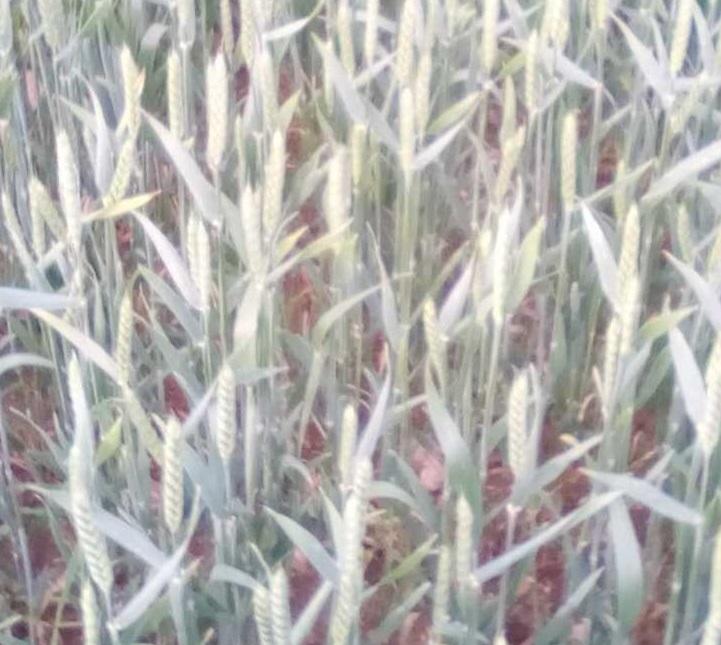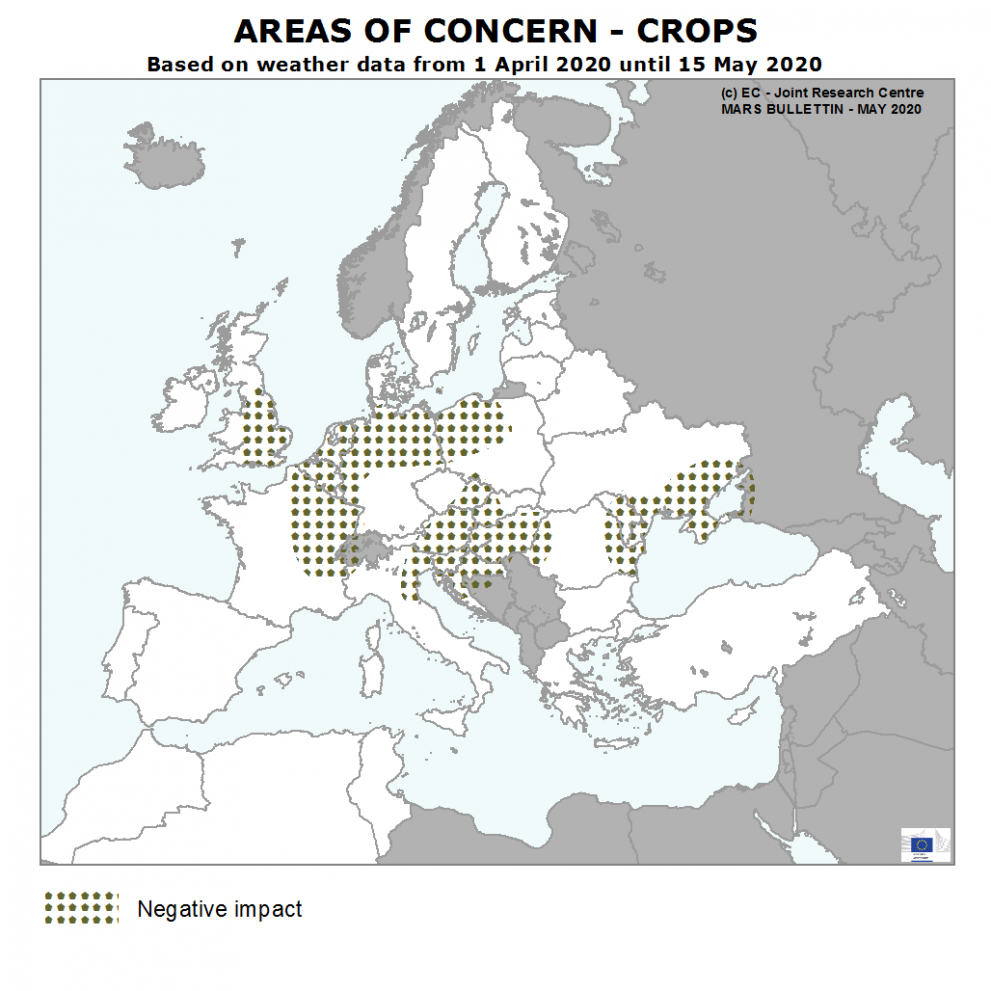
The May issue of the JRC MARS Bulletin - Crop monitoring in Europe - was published today, alongside the Turkey edition of the JRC MARS Bulletin global outlook series.
Yield forecasts have been revised downwards for almost all EU crops
According to the crop monitoring Bulletin for Europe, the yield forecasts for almost all crops were revised downwards at the EU level, and most markedly for rapeseed, winter barley and winter wheat.
In the case of spring barley, an upward revision of the yield forecast in Spain counterbalanced the downward revision in other countries.
As the summer crop season has just started, most of the country-level yield forecasts for summer crops are still based on historical trends or average values.

Dry conditions negatively impacted winter cereals and rapeseed
In much of western, central and eastern Europe, weather conditions were similar to those reported in the April Bulletin: predominantly above-average temperatures, high radiation levels, and insufficient precipitation to replenish soil moisture levels for the growth of winter and early-sown spring crops.
Little or no rain is forecast for the coming days in most of these regions, where winter cereals are approaching the sensitive flowering stage. In the case of rapeseed, the conditions of water stress already experienced partially coincided with the flowering and/or early grain filling stage.
In eastern Romania and western Ukraine, crops are stunted and present signs of wilting and early leaf senescence.
Summer crop conditions have improved, but more rain is needed
Rainfall since the end of April has facilitated the sowing and emergence of late-planted spring crops and summer crops in these regions, alleviating the difficulties caused by very dry top soils (as mentioned in the April issue of the Bulletin).
However, many emerging crops present uneven or patchy stands due to the previous dry conditions, and will require more rainfall to adequately sustain growth.
Favourable conditions in northern Europe and the Mediterranean region
In contrast, a favourable rainfall surplus was observed in western and eastern Mediterranean countries.
Favourable weather conditions also prevailed in northern Europe and the Atlantic region.
Unfortunately, the rainfall occurred too late in the season to be beneficial for winter crops in the Maghreb region.
Turkey experiences a very good season in south-eastern regions
Yield forecasts for winter cereals reported in the MARS Bulletin global outlook – Turkey are slightly above average, reflecting good crop conditions in south-eastern regions, where winter crops are at the end of the flowering stage.
After a difficult sowing campaign, abundant precipitation greatly improved weather conditions for crops.
Central Anatolian regions had a delayed start to the season due to unfavourable weather conditions at the beginning of winter.
Weather conditions were favourable for the growth of winter crops in spring, with average temperatures and good precipitation levels.
Summer crop sowing has just begun, and irrigation reservoirs are fully replenished.
Further information
JRC-MARS Bulletin Crop monitoring in Europe
Readers who wish to receive email notifications of new Bulletins can subscribe through the JRC's Agri4Cast ToolBox
Related Content
Details
- Publication date
- 18 May 2020
